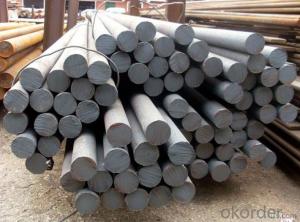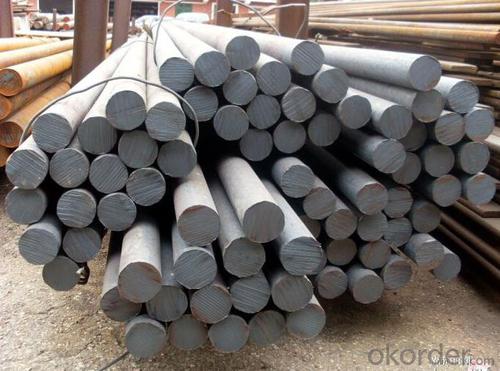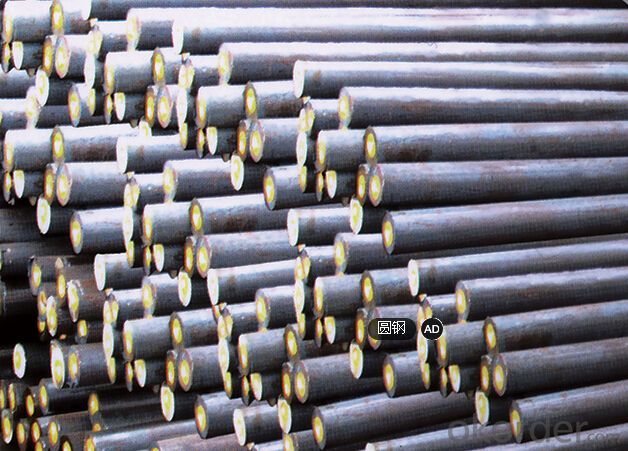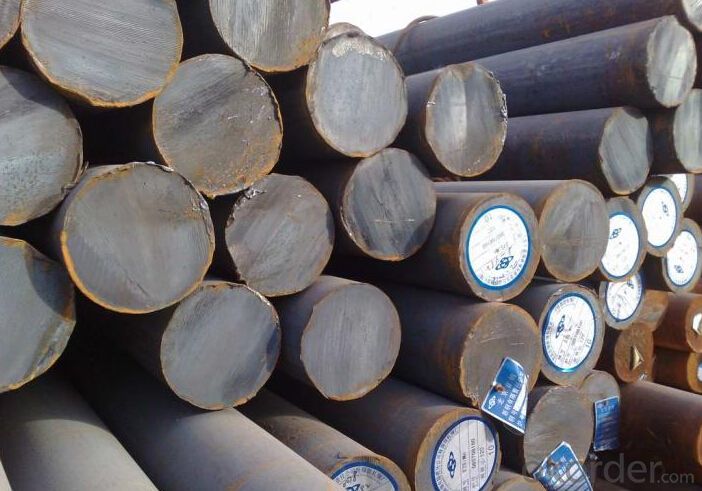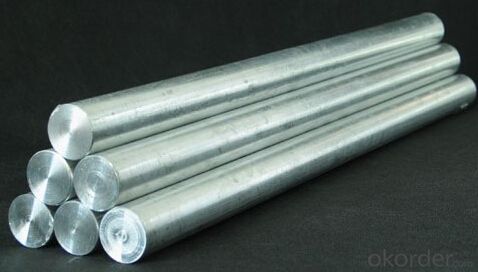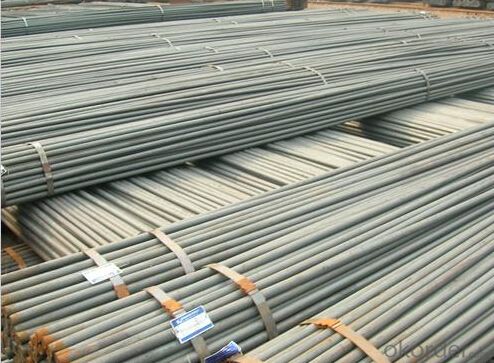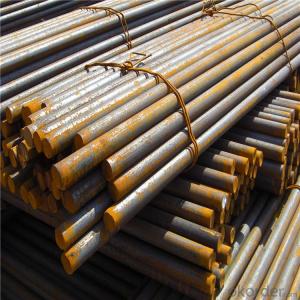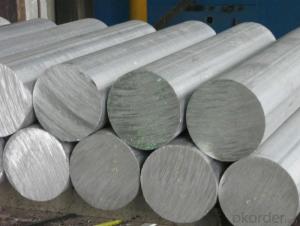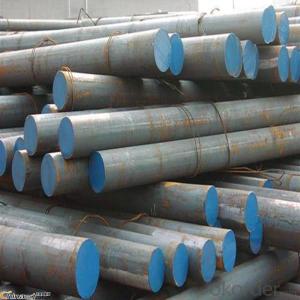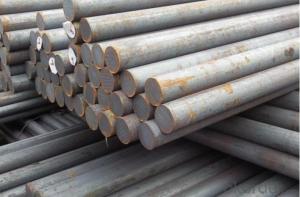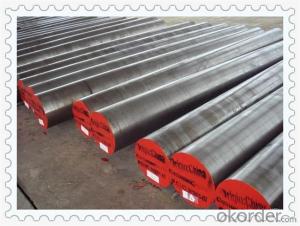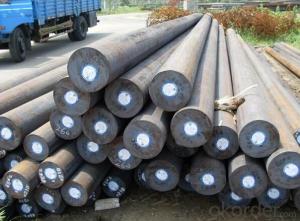Grade SAE4340 High Speed Steel Bar for Gears
- Loading Port:
- Qingdao
- Payment Terms:
- TT OR LC
- Min Order Qty:
- 5 m.t.
- Supply Capability:
- 100000 m.t./month
OKorder Service Pledge
Quality Product, Order Online Tracking, Timely Delivery
OKorder Financial Service
Credit Rating, Credit Services, Credit Purchasing
You Might Also Like
Specification
Type:
Carbon Steel,Spring Steel,Bearing Steel,Gear Steel,Deformed Steel,Stainless Steel,Alloy Steel
Shape:
Steel Coil,Steel Sheet,Steel Wire Rod,Steel Flat Bar,Steel Square Bar,Steel Angle,Steel Round Bar,Steel Billets
Technique:
Hot Rolled,Cold Rolled,Cold Drawn,ERW,Forged,Saw,Extruded,EFW,Spring
Surface Treatment:
Galvanized,Coated,Copper Coated,Color Coated,Oiled,Dry,Chromed Passivation,Polished,Bright,Black,PVDF Coated
Certification:
ISO,SGS,BV,IBR,RoHS,CE,API,BSI,UL
Thickness:
16-800mm
Width:
16-800mm
Length:
6-12m
Outer Diameter:
16-800mm
Net Weight:
100kg
Packaging:
seaworthy packaging
Grade SAE4340 High Speed Steel Bar for Gears
Detailed Information of Grade SAE4340 High Speed Steel Bar for Gears
| Name | Steel Round Bar |
| Shape | Round Bar/Square Bar/Flat Bar/Plate/Wire |
| Standard | GB/ASTM/SAE/AISI/DIN/JIS/EN/BS |
| Surface Treatment: | Black/Peeling/Polished/Machined |
| Delivery Condition: | Hot Rolled or Forged/Peeled or Black Surface |
| Test | SGS/UT 100% Elements Testing |
| Certificate: | ISO/Mill Certificate |
| Service: | 24 hours online service / |
| more than 20 years trading and manufacture | |
| Quality Assurance: | the third party inspection, such as SGS, BV, TUV…etc. is acceptable |
| Packaging Details: | Seaworthy Packaging or as per customer's packing instruction |
Product Overviews of 4130 Steel Rod/4130 Steel Bar/Alloy Steel Bar
| Product Name | Typical Grades | Diameter(mm) | Standard Adopted |
| Carbon Steel | 20 (1020/S20C/C22) | ||
| 40 (1040/S40C/C40) | Ø16-Ø300 | ||
| 45 (1045/S45C/C45) | |||
| Bearing Steel | GCr9 (51100/SUJ1) | ||
| GCr15 (52100/SUJ2/100Gr6) | Ø12-Ø250 | ||
| GCr9SiMn (A485-Gr.1/SUJ3) | GB/SAE/ | ||
| Cr-Mo Steel | 20Cr (5120/SCr420H/20Cr4) | JIS/DIN | |
| 40Cr (5140/SCr440/41Cr4) | Ø12-Ø250 | ||
| 42CrMo(4140/SCM440/42CrMo4) | |||
| Gear Steel | 20CrNiMo | ||
| 20CrMn(5115/SMnC420/20MnCr5) | Ø16-Ø600 | ||
| 20CrNiMo(8620/SNCM220/20CrMiMo2) |
Company Introduction of Grade SAE4340 High Speed Steel Bar for Gears
CNBM International Corporation is the most import and export platform of CNBM group(China National Building Material Group Corporation) ,which is a state-owned enterprise, ranked in 270th of Fortune Global 500 in 2015.
With its advantages, CNBM International are mainly concentrate on Cement, Glass, Iron and Steel, Ceramics industries and devotes herself for supplying high quality series of refractories as well as technical consultancies and logistics solution.
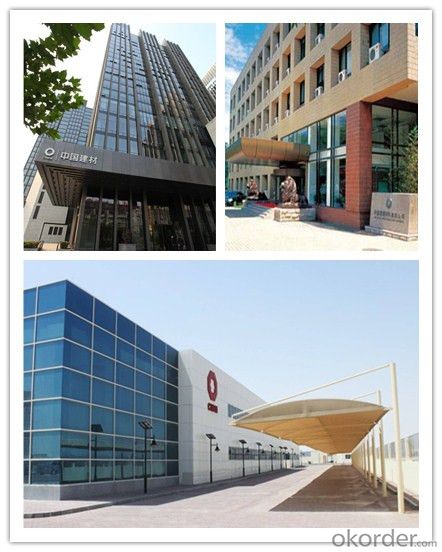
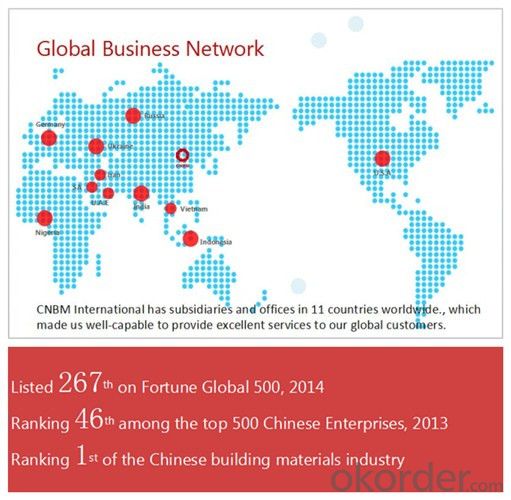
| After-sale service | l CNBM provides the services and support you need for every step of our cooperation. We’re the business partners you can trust; you can relax and get on with doing business. |
| l For any problem, please kindly contact us at any your convenient time, we’ll reply you in our first priority within 24 hours | |
| Advantages | l Industry experience over 20 years. |
| l Shipment of goods -More than 70 countries worldwide. | |
| l The most convenient transport and prompt delivery. | |
| l Competitive price with best service. | |
| l High technical production line with top quality products. | |
| l High reputation based on best quality products. | |
Packaging & Delivery of Grade SAE4340 High Speed Steel Bar for Gears
| Packaging Detail | Sea worthy packing /as per customer's packing instruction |
| Delivery Detail | 15 ~ 40 days after receiving the deposit |
Products Show
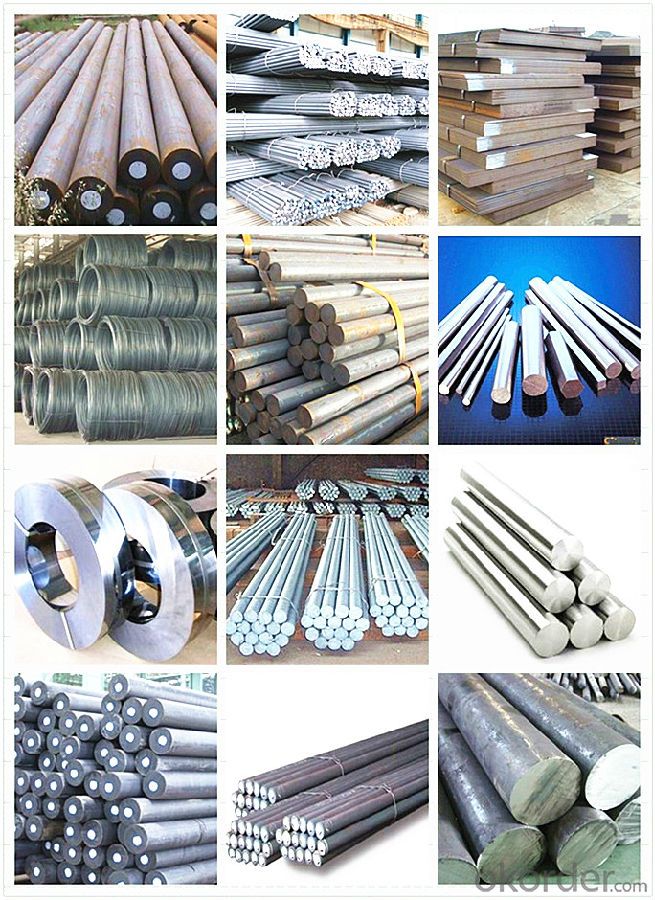
FAQ:
| Are you a trading company or manufacturer? | Manufacturer |
| What’s the MOQ? | 1000m2 |
| What’s your delivery time? | 15-20 days after downpayment received |
| Do you Accept OEM service? | Yes |
| what’s your delivery terms? | FOB/CFR/CIF |
| What's the Payment Terms? | 30% as deposit,70% before shipment by T/T |
| Western Union acceptable for small amount. | |
| L/C acceptable for large amount. | |
| Scrow ,Paybal,Alipay are also ok | |
| Why choose us? | Chose happens because of quality, then price, We can give you both. Additionally, we can also offer professional products inquiry, products knowledge train (for agents), smooth goods delivery, excellent customer solution proposals. |
| What's your available port of Shipment? | Main Port, China |
| What’s your featured services? | Our service formula: good quality+ good price+ good service=customer's trust |
| Where are your Market? | Covering more than 160 countries in the world |
- Q: How does special steel contribute to reducing product recalls?
- Special steel contributes to reducing product recalls by offering enhanced strength, durability, and corrosion resistance, thereby ensuring the integrity and reliability of various products. This reduces the likelihood of manufacturing defects, material failures, and premature breakdowns, which are common causes of product recalls. By using special steel in critical components, manufacturers can enhance product performance, safety, and longevity, leading to fewer recalls and improved customer satisfaction.
- Q: How does special steel contribute to the mining equipment industry?
- Special steel plays a significant role in the mining equipment industry by providing superior strength, durability, and resistance to harsh operating conditions. It is used in the manufacturing of various mining equipment components such as drill bits, crusher parts, conveyor belts, and buckets, enhancing their performance and longevity. Additionally, special steel enables the development of more advanced and efficient mining machinery, leading to increased productivity and safety in the mining sector.
- Q: What are the properties of high-strength tool steel?
- High-strength tool steel possesses excellent hardness, wear resistance, and toughness. It has the ability to retain its sharpness, withstand high temperatures, and resist deformation. This type of steel is also known for its high strength-to-weight ratio, making it ideal for heavy-duty applications in industries such as manufacturing and construction.
- Q: What are the specific requirements for special steel used in the agricultural sector?
- The specific requirements for special steel used in the agricultural sector typically include high strength, corrosion resistance, and durability. This is necessary to withstand harsh environmental conditions, heavy loads, and exposure to various chemicals and fertilizers. Additionally, the steel should have good weldability and formability to facilitate manufacturing processes.
- Q: How does special steel contribute to the aerospace material recyclability?
- Special steel contributes to aerospace material recyclability in several ways. First, special steel is known for its high strength-to-weight ratio, making it a preferred choice for critical components in aircraft. This means that when these components reach the end of their service life, they can be recycled and repurposed without compromising the safety and structural integrity of the aircraft. Additionally, special steel is highly durable and resistant to corrosion, making it suitable for long-term use in harsh aerospace environments. This durability ensures that the steel can be recycled multiple times without significant degradation in its mechanical properties, further enhancing the recyclability of aerospace materials. Moreover, the metallurgical properties of special steel allow for efficient recycling processes. Steel is a highly recyclable material, and special steel alloys can be easily separated from other materials during the recycling process. This ease of separation and the high value of steel in the recycling market make special steel an economically viable choice for aerospace manufacturers and recyclers. In summary, special steel's strength, durability, corrosion resistance, and ease of recycling make it a valuable contributor to the recyclability of aerospace materials. By using special steel in aircraft components, the aerospace industry can enhance sustainability efforts and reduce the environmental impact of its operations.
- Q: What are the different methods of preventing hydrogen embrittlement in special steel?
- There are several methods that can be employed to prevent hydrogen embrittlement in special steel. These include proper material selection, such as using low-hydrogen alloys or stainless steel grades that are less susceptible to embrittlement. Additionally, controlling the environment during manufacturing and storage processes is crucial, as hydrogen absorption can occur during these stages. Other preventive measures include heat treatment processes like stress relieving and tempering, which can help reduce internal stresses and enhance the steel's resistance to embrittlement. Overall, a combination of careful material selection, controlled environments, and appropriate heat treatment techniques can effectively prevent hydrogen embrittlement in special steel.
- Q: How does special steel contribute to reducing product weight?
- Special steel contributes to reducing product weight through its unique properties such as high strength, durability, and lightweight composition. By using special steel in the manufacturing process, designers can optimize the strength-to-weight ratio of the product, allowing for thinner and lighter components without compromising on performance or safety. This reduction in weight not only enhances the efficiency and performance of the product but also reduces material and transportation costs, making it a valuable solution in various industries.
- Q: What are the different types of heat-resistant steel?
- There are several different types of heat-resistant steel, including austenitic stainless steel, martensitic stainless steel, ferritic stainless steel, and nickel-based alloys.
- Q: What are the main characteristics of tool steel forgings?
- The main characteristics of tool steel forgings include high hardness, excellent wear resistance, and good toughness. They also exhibit high strength and heat resistance, making them suitable for applications that require cutting, shaping, or forming materials. Tool steel forgings are known for their ability to hold a sharp edge and withstand heavy loads, making them ideal for manufacturing tools, dies, and molds.
- Q: How does tungsten contribute to the properties of special steel?
- Tungsten is a critical element that contributes significantly to the properties of special steel. One of the major benefits of tungsten in steel is its ability to enhance strength and hardness. It forms a solid solution with iron, resulting in a fine-grained microstructure that increases the overall toughness and wear resistance of the steel. Additionally, tungsten helps to improve the high-temperature strength of special steel. It has a high melting point and maintains its strength even at elevated temperatures, making it ideal for applications that require resistance to heat and thermal stress. This characteristic allows special steel with tungsten to be used in environments with extreme temperatures, such as in gas turbines, rocket nozzles, and cutting tools. Tungsten also plays a crucial role in improving the corrosion resistance of special steel. It forms stable carbides that protect against corrosion and erosion, making the steel more durable and long-lasting. This is particularly valuable in industries where the steel is exposed to corrosive environments, such as chemical processing, marine applications, and oil and gas exploration. Furthermore, tungsten contributes to the machinability of special steel. It helps in reducing the built-up edge during cutting operations, resulting in improved surface finish and longer tool life. This characteristic is highly advantageous in industries that require precision machining, such as automotive, aerospace, and tool manufacturing. In summary, tungsten is a vital element in special steel as it enhances strength, hardness, high-temperature performance, corrosion resistance, and machinability. Its unique properties make it an indispensable component in the production of high-quality steel used in various industries.
Send your message to us
Grade SAE4340 High Speed Steel Bar for Gears
- Loading Port:
- Qingdao
- Payment Terms:
- TT OR LC
- Min Order Qty:
- 5 m.t.
- Supply Capability:
- 100000 m.t./month
OKorder Service Pledge
Quality Product, Order Online Tracking, Timely Delivery
OKorder Financial Service
Credit Rating, Credit Services, Credit Purchasing
Similar products
Hot products
Hot Searches
Related keywords
